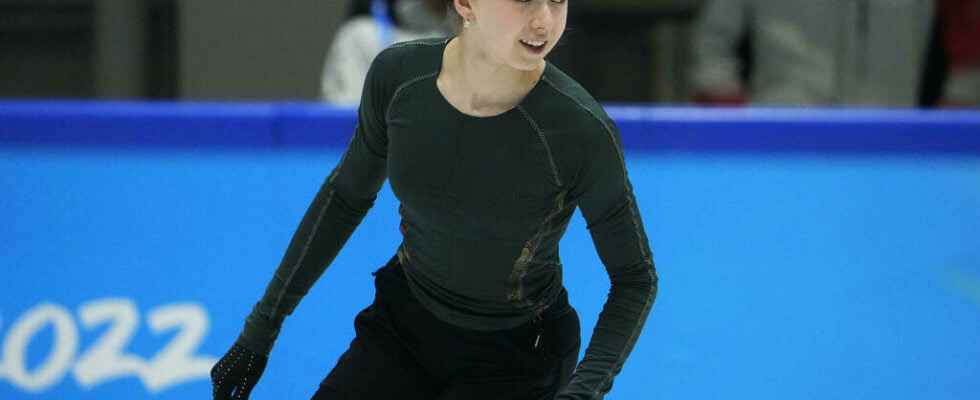The Kamila Valieva case is gaining momentum at the Beijing Winter Olympics. The reasons for the postponement of the awards ceremony for the figure skating team event on Monday have now been confirmed. The 15-year-old Russian phenomenon did indeed undergo a positive doping test before the Games. His case is now the subject of proceedings before the competent authorities.
It was the ITA, the International Authority responsible for supervising the anti-doping programs of around fifty federations, which put an end to the false suspense. Kamila Valieva has indeed tested positive for trimetazidine, a drug against angina pectoris, but banned since 2014, for its ability to improve endurance, reports our special correspondent in Beijing, Christopher Diremszian.
The control dates back to December 25, during the Russian championships, but the result was not revealed until Tuesday to the young prodigy, the day after his coronation by team. Immediately suspended provisionally by the Russian Anti-Doping Agency, she nevertheless obtained the lifting of the sanction on Wednesday evening, without justification made public.
►Also read: Beijing Olympics: does China’s zero Covid strategy spoil the Olympic party?
Dissatisfied, the International Olympic Committee and the International Skating Federation immediately filed an appeal before the Court of Arbitration for Sport, invited to rule before next Tuesday, the day of the short program of the women’s competition.
The Russian Olympic Committee questions
If Kamila Valieva were to be punished, her status as a minor – remember that she is only 15 – should ensure her a lighter and more confidential suspension. But what about the medal ceremony? When and with which teams? Especially since under the health protocol in force for these winter games, any skater who has completed his or her tests must leave China within 48 hours.
The Russian Olympic Committee (ROC) reacted strongly by questioning the conditions of the analysis, carried out in Stockholm, the Moscow laboratory having lost its approval in the context of the sanctions against the Russian anti-doping agency, and in particular on the deadlines.
“ Sample analysis times raise serious questions. The international standard for processing the A sample by the WADA laboratory is 20 days after delivery of the sample. Strange that the sample took almost a month to get from St. Petersburg to Stockholm “, underlined the president of the ROC, Stanislav Pozdnyakov. ” It looks like someone held the sample until the end of the team skating competition at the Beijing Olympics, won by the Russians, he added.
Unrelated to the cocktail of steroids used by the Russians during the incredible scandal of the 2014 Olympic Games in Sochi, or to the EPO involved in endurance disciplines, trimetazidine is rarely detected in a sports setting.
Trimetazidine, a product with disputed doping properties
Tested positive in 2019 and suspended for four years for doping in July 2020, French wrestler Zelimkhan Khadjiev had articulated his defense before the Court of Arbitration for Sport (CAS), challenging the scientific bases of the WADA list. According to doctor Jean-Pierre Mondenard, doping specialist cited as a witness and questioned last year by AFP, ” a guy took four years for a product that doesn’t move a snail “.
The pharmacist and toxicologist Pascal Kintz, also cited by the defense, noted in a study “the vagueness of the pharmacological activity of the molecule at the level of the AMA”, which first classified it among the “stimulants” before classifying it as “metabolic modulators”.
” The numbers parkinsonian-type side effects do not seem to be likely to favor use in athletes, ”he underlined in the review Analytical and Clinical Toxicologyciting the risks of “ gait disturbances, risk of falling and hallucinations “.
(and haswith AFP)
